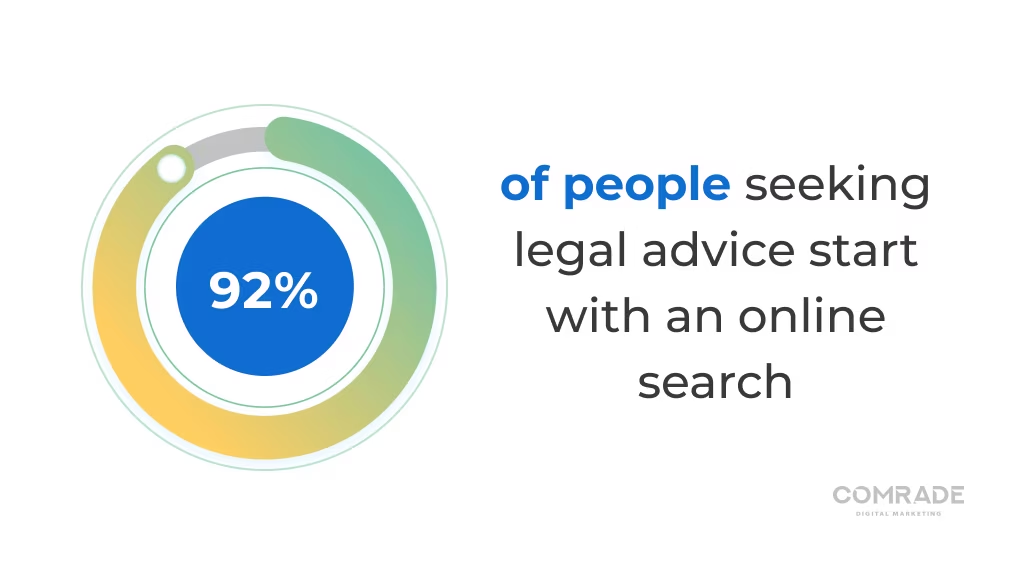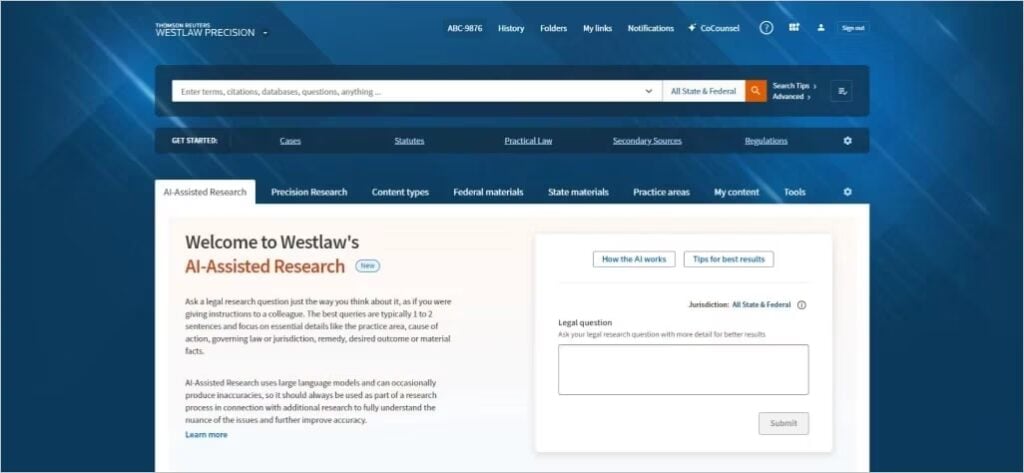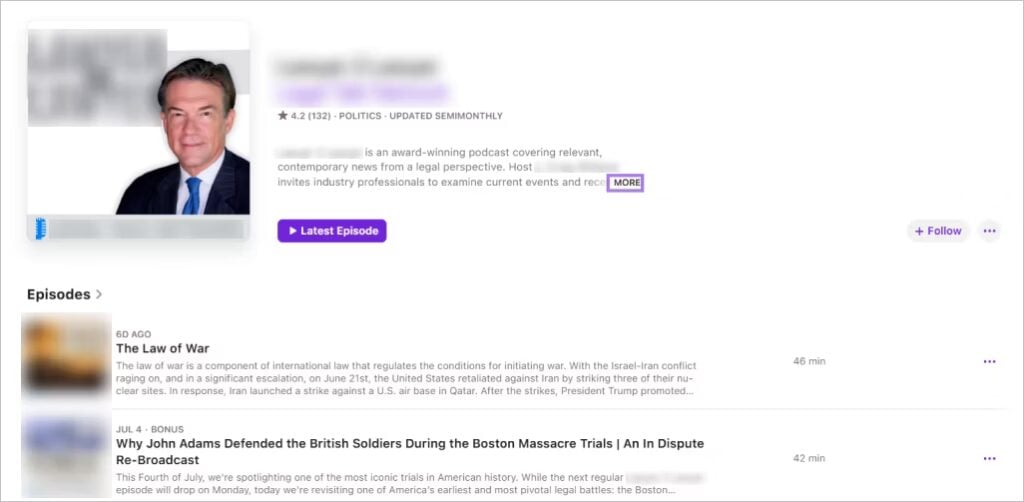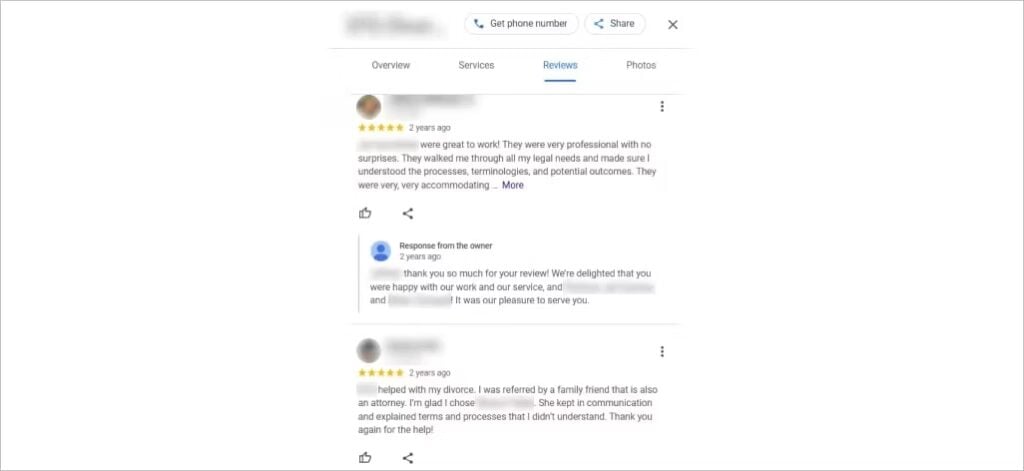The legal industry isn’t what it was five years ago — and neither is how clients find you.
Remember when a Yellow Pages ad and word-of-mouth referrals were enough? Those days are gone. Today’s legal clients start their search online, ask AI chatbots for advice, and expect instant answers at 2 a.m.
If your firm isn’t adapting to these shifts, you’re not just falling behind — you’re becoming invisible.
In this article, we’ll explore the five most impactful legal marketing trends transforming the industry right now. These aren’t just buzzwords or tech fads. They’re the forces reshaping how successful firms attract, engage, and convert clients in 2025.
Let’s dive into what’s happening — and why it matters for your practice.

Why These Legal Marketing Trends Matter More Than Ever
Picture this: A potential client gets into a fender bender at 11 p.m. on a Friday night.
Do they wait until Monday to call law firms? No. They grab their phone, type “what to do after a car accident” into Google, and expect immediate guidance. If your firm doesn’t show up with helpful answers, someone else’s will.
The Numbers Don’t Lie
The shift to digital-first client behavior isn’t slowing down:

- 92% of people seeking legal advice start with an online search
- 96% of consumers visit a law firm’s website before taking any action
- 75% of users don’t scroll beyond the first page of search results
But here’s the kicker: The way people search for and choose lawyers is evolving faster than most firms can keep up.
It’s Not Just About Being Online — It’s About Being Found
Having a website isn’t enough anymore. Today’s clients expect:
- Instant responses to their questions (even at midnight)
- Personalized content that speaks to their specific situation
- Video explanations that make complex legal topics digestible
- Reviews and social proof they can trust
- AI-powered tools that guide them through their legal journey
The firms thriving in 2025 aren’t just keeping pace with these expectations — they’re setting them.
The Cost of Ignoring These Trends
Every day you wait to adapt is another day competitors capture your market share. While you’re debating whether to invest in that chatbot or create video content, the firm down the street is already converting those leads into clients.
The legal industry has always been competitive. But now, the playing field has shifted from the courtroom to the search results, and the rules have completely changed.
Legal Marketing Trends #1: AI and Automation Tools Are Transforming Client Interactions

Gone are the days when automation was just a simple email autoresponder. Today, legal AI tools are revolutionizing law firm operations, transforming everything from the initial client interaction to comprehensive case management and beyond.
The Rise of Intelligent Legal Assistants
Remember when chatbots were those annoying pop-ups that could barely answer “What are your hours?” Not anymore. Modern AI chatbots for law firms can:
- Qualify leads by asking smart follow-up questions
- Schedule consultations directly into your calendar
- Answer complex legal FAQs with nuanced responses
- Collect case details while you sleep
- Route urgent matters to on-call attorneys
Firms using AI-powered chat tools report a 35% increase in qualified leads — and that’s just the beginning.
Document Automation Is Eating Repetitive Tasks
Legal professionals spend up to 40% of their time on administrative tasks. But AI is changing that equation fast.
Document automation platforms now handle everything from client intake forms to contract generation. What used to take hours now happens in minutes. One mid-sized firm in Chicago reported saving 15 hours per week just on intake documentation alone.
The Human Touch Still Matters
But here’s what many miss: AI isn’t replacing lawyers — it’s amplifying their capabilities. The most successful firms use automation to handle routine tasks while freeing attorneys to focus on what only humans can do: build relationships, provide empathy, and deliver nuanced legal counsel.
Firms that resist this trend aren’t just missing efficiency gains. They’re letting competitors offer faster, more responsive service at lower costs. And in a world where clients expect Amazon-level convenience, that’s a dangerous position to be in.
Legal Marketing Trends #2: Video and Multimedia Content Are Becoming Non-Negotiable
The rise of video content in legal marketing isn’t just a passing trend — it’s a powerful change in how potential clients engage with information.
Law firms that embrace this shift are better positioned to improve their Google ranking factors for lawyers and capture more opportunities.
Short-Form Video Is Dominating Discovery
TikTok isn’t just for dance videos anymore. Lawyers are going viral explaining tenant rights, breaking down DUI laws, and demystifying divorce proceedings — all in 60-second clips.
Consider this: Legal content on TikTok has grown by 850% in the past two years. Instagram Reels featuring legal advice see 67% higher engagement than static posts. Even LinkedIn video posts get 5x more engagement than text-only updates.
One personal injury attorney in Miami gained 50,000 followers (and dozens of high-value cases) by posting daily videos answering common accident questions. Her secret? Speaking like a human, not a legal textbook.
Live Streaming and Webinars Build Instant Authority
Weekly “Legal Q&A” sessions on Facebook Live. Monthly webinars on estate planning basics. Instagram Live discussions about recent law changes. These aren’t just engagement tactics — they’re trust-building goldmines.
Live video creates something pre-recorded content can’t: real-time connection. Viewers can ask questions, share concerns, and see the human behind the law degree. For nervous potential clients, that peek behind the curtain makes all the difference.
Podcasts Are Creating Loyal Audiences

Legal podcasts have exploded from niche content to mainstream media. Why? People can consume them during commutes, workouts, or lunch breaks. They’re building relationships with hosts over weeks and months, not just during a crisis moment.
Smart firms are launching shows that blend legal education with local stories, client victories, and practical advice. One family law practice in Seattle credits its weekly podcast with generating 40% of new client inquiries.
The Quality Bar Keeps Rising
Here’s the catch: Shaky smartphone videos and poor audio won’t cut it anymore. Today’s viewers expect professional quality — good lighting, clear sound, and edited content that respects their time.
But don’t let perfection paralysis stop you. The firms winning with video aren’t necessarily the ones with Hollywood budgets. They’re the ones showing up consistently with valuable, authentic content that helps people.
The message is clear: If you’re not creating video content in 2025, you’re not just missing a trend — you’re invisible to an entire generation of prospective clients.
Legal Marketing Trends #3: Digital Marketing Is Getting Hyper-Targeted and Personal

The outdated spray-and-pray tactic no longer works in digital marketing for law firms. Successful firms now use highly focused campaigns to engage the right prospects at just the right moment.
Mobile-First Everything
Here’s a sobering statistic: 78% of local mobile searches result in an offline purchase or visit. For law firms, that means someone searching “divorce lawyer near me” on their phone is likely ready to hire today.
But most law firm websites still treat mobile as an afterthought. The winners in 2025 design for mobile first, desktop second. That means:
- Thumb-friendly navigation
- Click-to-call buttons that work
- Forms that don’t require pinching and zooming
- Pages that load in under 2 seconds (not 10)
One firm redesigned its site with mobile users in mind and saw consultation requests jump 125% in three months. Same content, same services — just optimized for how people search.
Local SEO Is More Sophisticated Than Ever
“Near me” searches have grown 900% over two years, but that’s just the tip of the iceberg. Google’s local algorithm now factors in hundreds of signals — from review velocity to Google Posts engagement to how quickly you respond to questions.
The days of stuffing “personal injury lawyer Chicago” into every paragraph are over. Today’s local SEO winners focus on:
- Neighborhood-specific content
- Hyper-local link building
- Community involvement that generates natural mentions
- Google Business Profile optimization that goes beyond basic info
PPC Ads Are Getting Scary-Smart
Remember when PPC meant bidding on “lawyer + city” keywords? Those days are ancient history. Today’s paid advertising platforms use AI to:
- Predict which users are most likely to convert
- Automatically adjust bids based on conversion probability
- Create dynamic ads that change based on search intent
- Retarget visitors with personalized messaging
The result? CPAs (cost per acquisition) are dropping for firms that embrace these tools, while laggards watch their ad costs skyrocket.
Personalization at Scale
Perhaps the biggest shift: Mass marketing messages are dying. Today’s clients expect content that speaks directly to their situation.
Smart firms are using marketing automation to deliver:
- Different website experiences based on practice area interest
- Email sequences tailored to specific legal concerns
- Content recommendations based on browsing behavior
- Follow-up messages timed to typical decision cycles
This isn’t about being creepy — it’s about being helpful. When someone’s facing a legal crisis, generic marketing messages feel tone-deaf. Personalized, relevant content feels like a lifeline.
The firms thriving in this new landscape aren’t necessarily spending more on digital marketing. They’re spending smarter — using data, automation, and personalization to make every dollar work harder.
Legal Marketing Trends #4: Social Proof and Online Reputation Are Make-or-Break
Where your reputation once traveled slowly through country clubs and church gatherings, it now spreads at lightning speed through Google searches. Effective attorney reputation management is essential, as your practice’s future can hinge on it in seconds.
Reviews Are the New Referrals
Here’s a stat that should wake you up: 87% of consumers read online reviews for local businesses — and that number jumps to 93% for people seeking legal services.

But it’s not just about quantity anymore. Today’s savvy consumers look for:
- Recent reviews (nothing older than 3 months)
- Detailed experiences, not just star ratings
- How firms respond to negative feedback
- Patterns in what clients praise or criticize
One divorce attorney in Phoenix saw inquiries triple after implementing a simple review request system. No fancy marketing campaign — just consistent asks for feedback from satisfied clients.
Legal Directories Are Evolving Beyond Listings
Avvo, Justia, and Martindale-Hubbell aren’t just phone books anymore. They’re becoming comprehensive reputation platforms where:
- Peer endorsements carry serious weight
- Q&A participation builds authority
- Award badges provide instant credibility
- Client reviews create social proof
The firms dominating these platforms aren’t gaming the system — they’re actively engaging, answering questions, and building genuine authority.
Awards and Accolades Matter More Than Ever
“Super Lawyers” and “Best Lawyers” designations used to be nice-to-haves. Now they’re essential trust signals that prospects actively seek out.
But here’s the twist: It’s not just about collecting awards — it’s about strategically displaying them. Successful firms are:
- Creating dedicated “awards” pages that rank in search
- Adding badges to email signatures and social profiles
- Mentioning recognitions in video content
- Including them in Google Business Profile posts
Case Results Are Becoming Content Goldmines
Nothing earns a client’s trust like real results, but in a world where privacy matters more than ever, sharing those wins takes a thoughtful approach. The most forward-thinking firms are finding smart, human ways to do it.
They’re telling anonymized case stories that feel personal and relatable, highlighting impressive totals like “$50M recovered for clients,” featuring heartfelt video testimonials from those willing to share, and using clear before-and-after examples to show the real impact of their work.
It’s not just about numbers—it’s about telling a story that connects.
The Dark Side: Reputation Attacks Are Real
Here’s what nobody talks about: Negative reviews aren’t always from real clients. Competitors, disgruntled former employees, or opposing parties sometimes launch reputation attacks.
Smart firms are:
- Monitoring their online presence daily
- Responding professionally to all feedback
- Building a buffer of positive reviews
- Having a crisis management plan ready
The reality in 2025: Your online reputation isn’t just part of your marketing — it IS your marketing. Every review, rating, and recognition either attracts your next great client or sends them to your competitor.
Legal Marketing Trends #5: Data Analytics Are Separating Winners from Wishful Thinkers
Flying blind is no longer just inefficient — it’s a recipe for business failure. The law firms leading their markets in 2025 aren’t guessing what works; they rely on precise data, especially when it comes to SEM for law firms.
Beyond Vanity Metrics
Remember when success meant lots of website visitors? Those days are over. Today’s data-savvy firms track what matters:
- Cost per qualified lead (not just clicks)
- Client lifetime value by practice area
- Conversion rates at each funnel stage
- Revenue per marketing channel
- Time from first touch to retained client
One estate planning firm discovered that their blog posts about “living trusts” generated 10x more valuable clients than their “will vs. trust” content. Same effort, wildly different results — but they only knew because they measured everything.
Predictive Analytics Are Changing the Game
Here’s where it gets fascinating: AI-powered tools can now predict which leads are most likely to become clients. They analyze hundreds of data points:
- How did someone find your website
- Which pages they visited (and for how long)
- Whether they downloaded resources
- Their interaction with chat tools
- Even the time of day they’re browsing
Firms using predictive lead scoring report 40% higher conversion rates. They’re not working harder — they’re focusing on the leads most likely to hire them.
A/B Testing Everything
The most successful firms have embraced a culture of constant experimentation:
- Two different headlines on the same landing page
- Various call-to-action button colors
- Different email subject lines
- Multiple ad copy variations
- Alternative form lengths and fields
One personal injury firm tested 15 different homepage headlines over 6 months. The winner? It generated 67% more consultation requests than their original. Cost to implement? Zero. Value? Priceless.
Real-Time Dashboards Drive Real Results
No more waiting around for monthly reports that show up weeks late.
Today’s top firms get instant access to real-time dashboards that track everything — from how ads are performing across platforms to live chat conversations, phone calls by source, and even how people are engaging with content. When something’s off with a campaign, they spot it within hours and can adjust quickly, instead of losing months stuck in the dark.
It’s all about staying ahead and making smart moves right when it counts.
The Integration Revolution
Perhaps the biggest shift: Marketing data no longer lives in silos. Modern firms integrate:
- CRM systems with marketing platforms
- Call tracking with client management
- Email marketing with case outcomes
- Ad spend with actual revenue generated
This integration reveals insights impossible to see before. Like the criminal defense firm that discovered their YouTube videos generated clients worth 3x more than PPC ads, but took 6 months longer to convert.
Making Data Human
Here’s the crucial point: All this data isn’t about replacing human judgment — it’s about informing it. The best firms use analytics to:
- Spot opportunities others miss
- Validate gut instincts with hard numbers
- Allocate resources where they’ll have maximum impact
- Prove ROI to partners who think marketing is “fluffy”
In 2025, the question isn’t whether to embrace data-driven marketing. It’s whether you’ll use data to lead your market, or watch competitors use it to leave you behind.
The Bottom Line: Adapt Now or Fade Away
Legal marketing continues to evolve, and firms that want to grow need to adapt quickly. From smarter SEO strategies to AI-powered tools and personalized client experiences, the landscape is full of opportunities for firms willing to embrace change. Staying current isn’t just helpful—it’s essential to staying competitive.
The good news? You don’t have to figure it all out on your own. At Comrade Digital Marketing, we partner with law firms to create strategies that drive real results. Whether you need to generate more leads, build a stronger online presence, or refresh your website, we’ve got the experience and tools to help.
What sets us apart is our deep understanding of both marketing and the legal industry. We know what it takes to reach the right clients and convert interest into action. Our approach is hands-on, data-driven, and always tailored to your specific goals.
If you’re ready to take your law firm’s marketing to the next level, book a free consultation with Comrade Digital Marketing today. Let’s explore how we can help you grow with confidence.
Frequently Asked Questions
-
Should law firms hire a marketing agency?
Yes, law firms should consider hiring a marketing agency, especially if they lack in-house expertise. A specialized agency can help develop effective marketing strategies tailored to the legal industry, ensuring compliance with advertising regulations while maximizing visibility. From social media marketing to search engine optimization and branding, an experienced agency brings the tools and knowledge to elevate a law firm’s marketing efforts.
-
What are some common mistakes in legal marketing?
Common mistakes include inconsistent branding, neglecting client testimonials, and underestimating the power of video marketing. Many firms also fail to measure their digital marketing efforts, leading to wasted budget and missed opportunities. Overly generic messaging and ignoring local SEO are other pitfalls that can reduce a law firm’s ability to attract the right clients.
-
What is the cost of legal marketing services?
The cost of legal marketing varies widely based on scope and services. Small firms may spend $1,500–$5,000 per month for basic content marketing and SEO, while larger firms or aggressive campaigns involving social media advertising and PPC can exceed $20,000 monthly. Costs should be viewed in the context of return on investment, with quality strategies driving measurable growth.
